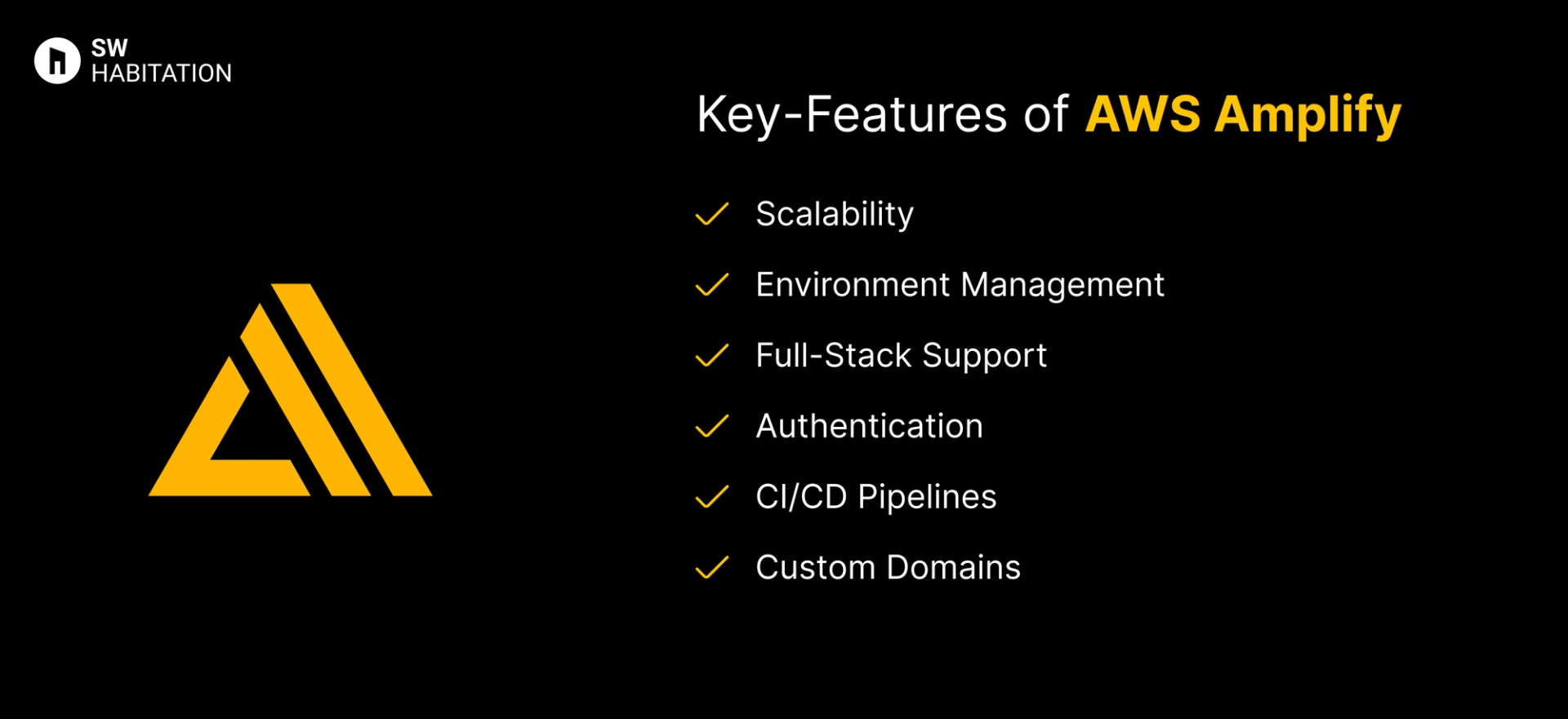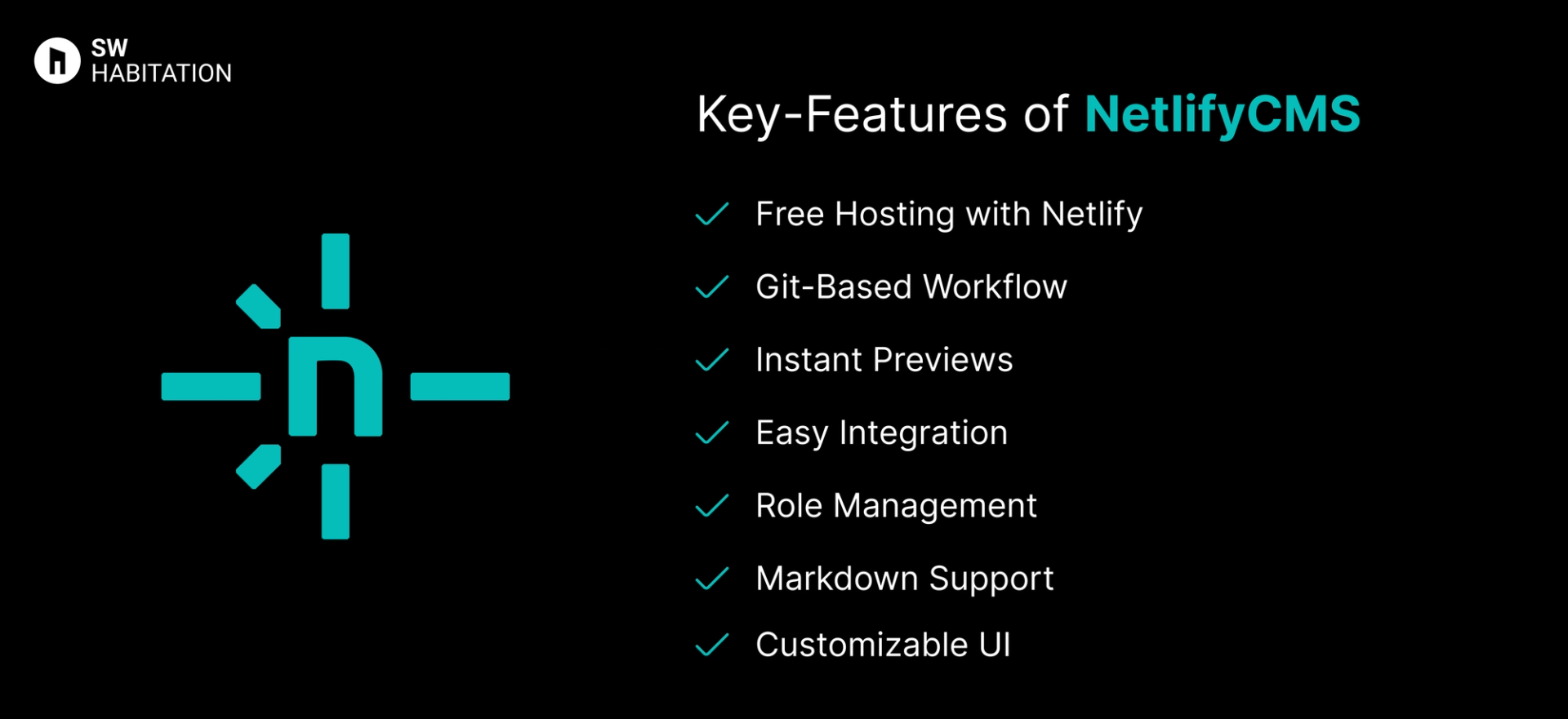AWS Amplify vs. NetlifyCMS

AWS Amplify

NetlifyCMS
You know when you’ve finished building your website and just want to get it online without dealing with all the techy stuff? That’s where deployment platforms help. They make it super easy to put your site live, just connect your code, click a button, and it’s up and running. No need to worry about servers or complicated setups.
They also take care of the important things like speed, security, and updates in the background. So while they handle the heavy stuff, you can focus on making your website look good and work great. It's simple, right?
What is AWS Amplify?
AWS Amplify is a deployment platform by Amazon Web Services that simplifies building and hosting full-stack applications. It provides tools to connect frontends to backends, manage app hosting, and scale effortlessly. Whether you’re working with static sites, dynamic apps, or serverless functions, Amplify has your back.
Key Features of AWS Amplify


- Scalability: Automatically scales with traffic, no manual intervention needed.
- Environment Management: Create separate environments for dev, staging, and production.
- Full-Stack Support: Deploy frontend and backend from a single platform.
- Authentication: Easy integration with Amazon Cognito for user management.
- CI/CD Pipelines: Automatic builds and deployments with every code push.
- Custom Domains: Connect your own domain with SSL certificates included.
Advantages of AWS Amplify
- Custom Domains and SSL: Free SSL and easy domain setup.
- Great for Serverless Apps: Perfect for serverless architectures.
- All-in-One Solution: Handles frontend, backend, and deployment seamlessly.
- CI/CD Out of the Box: Push code, and Amplify automatically builds and deploys.
- Integrated with AWS: Leverage the full power of AWS services like Lambda, S3, and DynamoDB.
Disadvantages of AWS Amplify
- Vendor Lock-In: Deep integration with AWS means it’s harder to migrate to other platforms later.
- Learning Curve: Familiarity with AWS services is helpful but can be overwhelming for beginners.
- Cost Complexity: Pricing can get confusing as your app scales and uses more AWS services.
What is NetlifyCMS ?
NetlifyCMS is an open-source headless CMS built to work with static site generators like Gatsby, Hugo, and Next.js. It gives you a simple web-based UI to manage your content while storing everything directly in your Git repository. This means every change you make is version-controlled, just like your code.
Key Features of NetlifyCMS


- Free Hosting with Netlify: Deploy instantly with Netlify for free.
- Git-Based Workflow: All content changes are stored as commits in your Git repository.
- Instant Previews: See how your content will look before publishing.
- Easy Integration: Works seamlessly with static site generators like Gatsby, Hugo, and Jekyll.
- Role Management: Assign roles to control who can edit what.
- Markdown Support: Write content in Markdown and preview changes in real time.
- Customizable UI: Tailor the admin interface to fit your content structure.
Advantages of Netlify CMS
- Simple Setup: Easy to integrate with Git and static site generators.
- Free to Use: Open-source and works perfectly with Netlify’s free tier.
- Version Control: Content changes are tracked in Git, ensuring full transparency.
- Fast Deployment: Deploy instantly with Netlify.
- Markdown Support: Write clean, lightweight content with Markdown.
Disadvantages of Netlify CMS
- Not Ideal for Large Projects: Better suited for smaller projects.
- Git Dependency: Requires familiarity with Git workflows.
- Limited Integrations: Fewer built-in integrations compared to larger CMSs.
- No Database: Content is stored as files in Git, not in a traditional database.
Comparison Between AWS Amplify vs NetlifyCMS
Use Cases of AWS Amplify
- Enterprise Apps: Ideal for large-scale applications needing robust infrastructure.
- Rapid Prototyping: Quickly spin up apps with authentication, storage, and APIs.
- Full-Stack Applications: Manage both frontend and backend in one place.
- Serverless Applications: Leverage AWS Lambda and API Gateway.
Use Cases of NetlifyCMS
- Personal Blogs: Simple and fast content management for personal sites.
- Portfolios: Showcase your work with minimal setup.
- Small Business Websites: Perfect for static websites that don’t require complex features.
- Developers Who Love Git: Version control your content the same way you do with code.
Other Resources
Conclusion
Deployment platforms are a total game changer if you’re looking to launch your website quickly, reliably, and without any trouble. Whether it’s a personal portfolio, a startup site, or a growing business platform, they handle the technical heavy lifting like hosting, security, and scalability so you can stay focused on building great experiences for your users.
You’re not boxed into a single approach. Most platforms integrate smoothly with the tools and frameworks you already love, letting you deploy directly from your Git repository, preview updates, and roll back with ease. With lightning-fast performance and dependable uptime, deployment platforms simplify the path from code to production. Pick the one that aligns with your workflow, and you’re all set to launch with confidence 🚀
Frequently asked questions
Is AWS Amplify free?
It has a free tier, which is great for testing and small apps. Paid usage kicks in based on bandwidth, storage, and build time.
Is AWS Amplify good for static sites?
Amplify is great for static sites and JAMstack apps, and it includes global CDN hosting, caching, and atomic deployments.
Does AWS Amplify support CI/CD?
Yes, Amplify has built-in CI/CD, just connect your Git repo (GitHub, GitLab, Bitbucket), and it auto-deploys on every push.
What can I build with AWS Amplify?
You can build and deploy full-stack apps with frontends (React, Vue, Angular, etc.) and backends (APIs, databases, authentication) using AWS services.
What is Netlify CMS?
Netlify CMS is an open-source content management system. It is designed for static site generators. It provides a user-friendly interface for editing content stored in Git repositories.
Is hosting on Netlify required?
Nup, While it integrates seamlessly with Netlify, you can use it with any Git-based static site hosted anywhere.
What static site generators are supported?
Netlify CMS supports popular generators like Hugo, Jekyll, Gatsby, Eleventy (11ty), and others.
